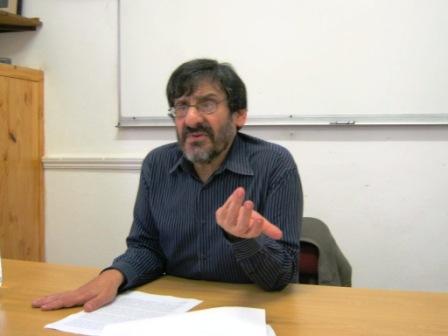
Steve Biko, of course, did not live to see the way politics and black business have connected since 1994. But he may well have been horrified. And he would no doubt have seen a key role for black consciousness (BC) in fixing the problem.
The claim that emails between Cyril Ramaphosa and Lonmin show that he had a role in the Marikana shootings are not backed by evidence. All he seems to have done is to lobby government to see the dispute Lonmin’s way, which is hardly surprising, seeing that he has a stake in the company. The link to the killings is a product of factional politics, not reality.
But the emails could be seen as evidence of a problem more important than the wars between politicians. We have not yet heard Ramaphosa’s side of the story, but they could be read to mean that Lonmin saw him less as a business partner than as someone who could ferry messages to the government on its behalf.
If so, Ramaphosa would hardly be alone. Much of what many in black business have been doing for the past 20 years could be seen not as claiming a stake in the economy but giving a stamp of respectability to a system still run by much the same people in much the same way as before 1994.
It is hardly new to point out that many blacks who have done well in business since 1994 have been people with political connections. This suggests that what large businesses want from them is not their skills and resources, but those connections.
While many of those who do this are no doubt honest, this arrangement seems to foster corruption. If advancing in corporate business is about getting what you can out of a system run by others, those who do this have no motive to take responsibility. They are likely neither to try help the system grow nor try to change it.
This reality could also affect public life. If being politically connected gets you hooked up to where the private money is, people are likely to take very seriously the task of becoming attractive to business by holding political office. They may use any method they can think of to get the political posts they need to get in on the action.
If we put the two together, we can see black businesspeople and politicians who engage in corruption in a different light to the one suggested by much of our public debate. Instead of looking at them as people who are reaping the benefits of freedom, we might see them as servants of our past.
We would also understand “economic freedom” differently. It would no longer be a slogan designed to enable some black people to gain a bigger chunk of a system controlled by others.
This is what some who call for that freedom want. If we look carefully at their proposals to give black business a bigger chunk in white-owned mines, they too seem to be trying to get what they can out of the system we inherited, not trying to create something new.
And that, of course, is where black consciousness comes in. Corruption and radical-sounding slogans designed to give blacks a larger slice of an economy run by others could be seen as signs of a huge inferiority complex, a belief that black people cannot take decision-making responsibility for this economy and are therefore forced to get what they can out of the system while others take the decisions. And it was precisely that sort of attitude which Biko and other BC thinkers warned against.
If we started thinking in this way, the heroes and heroines would not be those who use heated language to justify getting what they can. It would be those who take responsibility, believe in their own ability and work to become business leaders, and whose money is a product of their decision making and skill, not of being better than others at making the old system work. They would not be those who had most goods but those who had most responsibility.
Our national debate might then change too. Those who now get rich by playing the system would be labelled stooges of the old order, whether they did it by rubber stamping the decisions of others or by helping themselves to the system’s goodies; and so would those who believe that slogans can hide their desire not to change the system but to get more from it.
If we changed our ways of judging success and failure in this way, owning great wealth and showing it off would attract not respect but rejection because it would be seen as continuing the old order’s attitudes, and that could be a more powerful weapon against corruption than any we have found so far.
If Biko were still with us, it seems likely that he would be encouraging the economic elite, whether in the private or public sector, not to allow white business to decide who and what they should be. His writings suggest that they would be urged to take more power by taking more responsibility, by seeking to shape the economy rather than to get what they can out of it.
Prof Steven Friedman is director of the Centre for the Study of Democracy at Rhodes University and University of Johannesburg. This article was published on The New Age.
